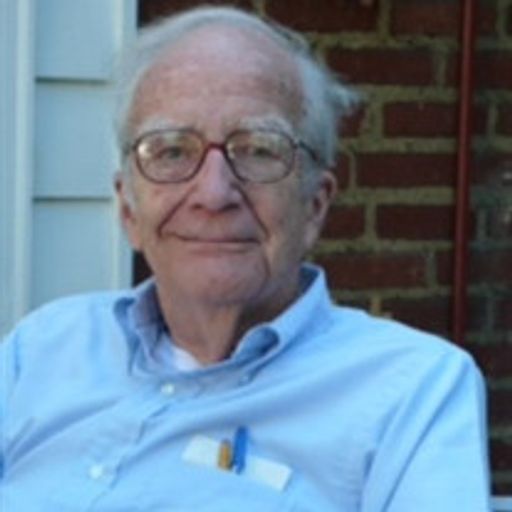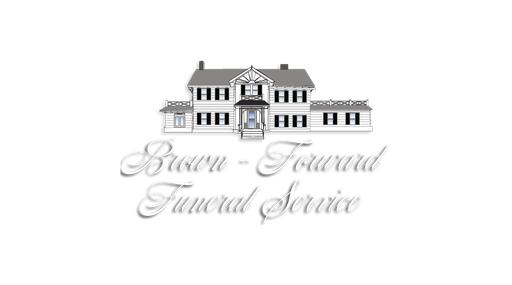

1924
Robert
2013
Robert Ginn
January 13, 1924 — March 5, 2013
ROBERT M. GINN The beloved husband of Barbara nee Force of Cleveland, OH, passed away March 5th, 2013. After graduating from high school in Detroit, Bob Ginn earned BS and MS degrees in electrical engineering from the University of Michigan College of Engineering. Bob also was an early graduate of Harvest Business School's Advanced Management Program. During World War II, Bob studied at MIT, Harvard, and University of Minnesota. Immediately after UM graduation, Cleveland Electric Illuminating Company CEI hired Bob, who worked across most CEI functions excluding engineering, which he noted with good humor. Ultimately, Bob served as CEI's Chairman and CEO. Bob served as Chairman and CEO of Centerior Energy, the corporation formed from the merger of CEI and Toledo Edison. After he retired from Centerior, Bob was invited to teach at John Carroll University JCU. He taught undergraduate and graduate courses, including management and ethics, in the JCU's business school. In his honor, several of Bob's friends raised funds to initiate the Institute for Social Corporate Responsibility based at JCU, which provided students with funding for paid internships at non-profit organizations in the Greater Cleveland area for many years. Bob was deeply committed to Cleveland and believed strongly in giving back to the community. He served on numerous boards in leadership roles and received many honors for his leadership and contributions. He served on the boards of human services organizations including Vocational Guidance and Rehabilitation and the Welfare Federation and the arts including Cleveland Symphony Orchestra and Cleveland Opera. Education was one of Bob's highest priorities. He was a member and president of the Shaker Heights School Board; an early leader of the Cleveland Scholarship Program now "College Now"; member of the JCU Board of Trustees and visiting committee of Case Western Reserve University; board member of Martha Holden Jennings Foundation; supporter of Berea College; and active alumnus and long-time fundraiser for the University of Michigan, as well as a big fan of the Wolverines football team! Some of his other avid interests were reading, walking, photography, traveling and of course, his love for his boyhood baseball team, the Detroit Tigers! Bob loved his family. Bob and Barbara nee Force were married for nearly 65 years. In addition to Barbara, Bob is survived by his children Anne Ginn, Martha Maggos-Dufort Robert Dufort and Tom Ginn Jill; granddaughter Kendra; and sister-in law, brothers-in-law, nieces and nephews. He was predeceased by his sister Marjorie Demare. Throughout his life, Bob was honored to be friend, colleague, leader, and mentor to many people, particularly his students. Bob was proud of his Scottish and Canadian heritage. The family prefers that those who wish may make contributions in his name to College Now Greater Cleveland, 50 Public Square, Suite 1800, Cleveland, OH 44113 or the College of Engineering of The University of Michigan, College of Engineering Office of Advancement, Robert H. Lurie Engineering Center, 1221 Beal Avenue, Ann Arbor, MI 48109-2102 734-647-7040. Funeral services will be held Saturday, March 9th at 2PM in Plymouth Church of Shaker Heights, 2860 Coventry Rd. at Weymouth Rd.. FRIENDS MAY CALL FRIDAY, MARCH 8TH AT BROWN-FORWARD, 17022 CHAGRIN BLVD., SHAKER HTS., OH FROM 6-8 PM. For a perspective on some of his priorities in recent years, Bob's family suggests reading the following Benjamin Rose Institute interview with him conducted July 29th, 2002. This is an interview conducted by The Benjamin Rose Institute on Aging. "For over 40 years, Robert "Bob" Ginn worked in a variety of positions for Cleveland Electric Illuminating Company, a subsidiary of First Energy Corporation. He ended his career there as Chief Executive Officer, retiring willfully at age 65. He wasted no time parlaying his leadership skills into a teaching career. He began teaching management courses at John Carroll University in University Heights, Ohio, where he also helped establish the Institute for Corporate Social Responsibility. A University of Michigan graduate who earned both his undergraduate and graduate electrical engineering degrees in 1948, Mr. Ginn remains an active alumnus of the school. His upbringing, schooling, and exposure to an innovative management style at CEI propelled him into civic opportunities that made him a well-known leader in the business and non-profit community. His current involvement including cultivating the leaders of tomorrow as well as serving on the boards of area non-profits and two colleges. Today, he ponders "slowing down," but says his teaching career keeps him going. Tell us about yourself. I grew up in Detroit. I went to the public schools there. My father's parents were Canadian, but their parents were born in Scotland. My dad studied engineering at the University of Michigan for three years in World War I, then enlisted in the Air Force. After that he didn't go back to college; he went to work for a friend of his in the automobile business. My mom never graduated from high school. She thought she'd become a nurse. But she went to nursing school and didn't like it, so she became a secretary for a law firm. She was a bright woman. She was bound and determined that her kids would achieve all that was possible. From the time I was a little kid, the first thing I'd do was my homework, then I could listen to the Lone Ranger on the radio. I did very well, and graduated valedictorian in my high school class. I was interested in science and math. It was during the Depression, and my sister had health problems. I managed to get a scholarship to the University of Michigan. I think it was $60 a semester, which was a lot in those days. I worked for six months to accumulate a little money, and started in the fall of 1942. The war was underway, so I enlisted in the Air Force. I ended up getting trained in communications, which was basically electrical engineering, first at the University of Minnesota and then at Harvard University. Then the war ended. Because of all my training, I could finish my degree going summers in two and a half years. I had one course to take, which meant I had to go a whole more year for that one course. So I double registered and got a master's degree and bachelor's degree in electrical engineering the same day. I had met Barbara his wife on a blind date through a visit to my sister. Barbara was going to go to Columbia for graduate school in library science, but I talked her into going to Michigan so she'd be closer. After I graduated, I interviewed with CEI the Cleveland Electric Illuminating Company. We got married and came to Ohio in 1948. How did working at CEI shape your career? It was the kind of work I really wanted to do. The only part of the company I didn't work was in engineering, but with my schooling, I understood what their business was. I worked in finance, marketing, communications, operations, human resources management. I had the very good fortune at the time it became an independent operating company. The two top executives when I joined CEI were fabulous people. One is Ralph Besse, who was 96 last November. He's a sharp as he ever was. Besse had done a lot with CEI as a partner for Squire Sanders a law firm. The other one was Elmer Lindseth. Elmer was with CEI his whole working career. He was in the operations/marketing side. They were very different personalities. The two of them set up a program after World War II to hire young people and give them lots of experience in different activities. There were about eight of us who had a rotation of assignments where you'd work for a year in one job, then were transferred to another job that was completely different. It's not typical for someone with a background in electrical engineering to become such a prominent civic leader. Both Lindseth and Besse came from very poor families. Both worked their way through school They had a strong feeling about those people that aren't as fortunate as you are. Elmer felt very strongly about the importance of top management people knowing the total community. He and Ralph supported a lot of activities. We had the first tuition reimbursement program in the country. If you became involved in a non-profit organization, the company would match your gift. All of these things applied whether you were a line man or a vice president. Ralph suggested I join The City Club. I met people from the media, people from different walks of life. I got to know people through the Welfare Federation, and some of the people who worked at the settlement houses. I made some very good friends I would not have met otherwise. How did their attitude toward aging affect you? Elmer and Ralph believed when you're 65, get out. Find something else to do. It's worth it to lose five good people to retirement than to have one stay on too long. I think they were right. I've never regretted it. Management, I've always felt, was a teaching job. As I was retiring, I was approached by both Tom O'Malley at John Carroll and Neal Malicky at Baldwin Wallace to teach. John Carroll was one and one half miles from my house, and I had been a trustee there, so I started teaching there. What do you teach? I teach strategic management to undergrads. I teach them it's not just adding up numbers, but considering everything. It's all future oriented, so you have to make sure you consider "what if I'm wrong, how much am I risking, etc." And early on I started teaching an ethics course to MBA students. Teaching is what keeps me going. I don't believe in just giving the students a grade. I write them a letter at the end of the semester, telling them how I arrived at their grade, what areas they might improve on, what their strong points are. I tell them to contact me in the future if they need to. I'm also involved in providing internship opportunities to students. One friend who knew John Carroll said, "We're going to raise some money, so we can keep you busy." So they raised money for what is now the Institute for Corporate Social Responsibility at John Carroll. It's to the point now where we can probably support 30 interns a year. I try to pick business school and communications majors for non-profit organizations. The students love it. They really work at the non-profits; they're not just standing at the photocopier the whole time."
PDF Printable Version
PDF Printable Version
Guestbook
Visits: 74
This site is protected by reCAPTCHA and the
Google Privacy Policy and Terms of Service apply.
Service map data © OpenStreetMap contributors


